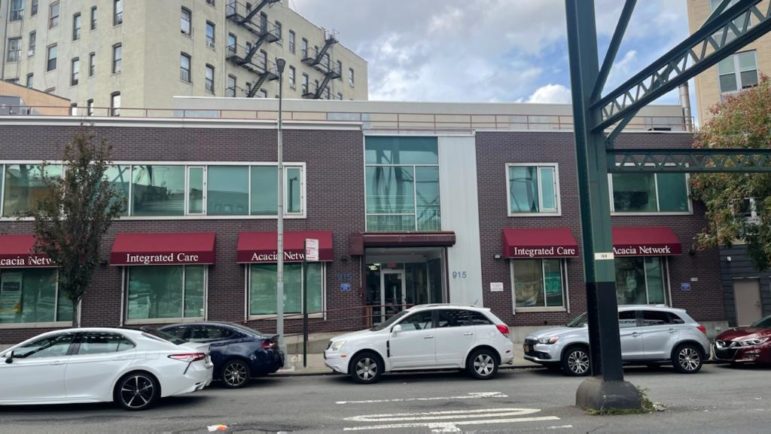‘The continued expansion and funding of CCBHCs is not guaranteed, despite bipartisan support, and the pandemic will continue to fuel mental health and addiction crises.’

Courtesy of Acacia Network
Acacia Network’s Westchester Avenue Family Health Care CenterDuring the COVID-19 pandemic, mental health and substance use treatment needs have soared, and the toll has been most severe in communities of color. As of February 2021, nearly half of all Black and Hispanic adults across the U.S. had reported symptoms of anxiety or depression. When opioid overdose deaths hit record levels in 2020, the increases were particularly steep among Black Americans.
Fortunately, there is a game-changing model of care called the Certified Community Behavioral Health Clinic (CCBHC) that has helped many communities across the country to meet this rising need. Codified in the Protecting Access to Medicare Act of 2014, CCBHCs enable providers to expand their scope of mental health and substance use services with a Medicaid reimbursement rate based on their anticipated costs of service expansion.
In 2017, New York was one of the first eight states selected to implement a CCBHC demonstration program. The nonprofit where I work, the Acacia Network, was one of the first five providers in New York City to operate a CCBHC through our affiliate, PROMESA. We brought the model to our Westchester Avenue Family Health Care Center in the Bronx, where 84 percent of those we serve are Latino or Black and 70 percent receive Medicaid benefits.
Because CCBHCs receive Medicaid funding to support the real costs of expanding services to fully meet the need for care in underserved communities, we have been able to provide extended hours, more clinicians and case managers, increased access to diverse services and medications, and improved health for populations that might require specialized services, such as children and veterans.
 CityViews are readers’ opinions, not those of City Limits. Add your voice today!
CityViews are readers’ opinions, not those of City Limits. Add your voice today!
Despite the challenges of the ongoing COVID-19 public health and economic crisis, the CCBHC model has enabled us to meet rising behavioral health needs. Over the course of the pandemic, we have served over 1,500 unique clients at our clinic—a 21 percent increase since 2017. Further, the model reduces emergency room visits and psychiatric hospitalizations, leading to better patient outcomes and lower costs. In fact, patients at our clinic experience psychiatric hospitalizations at rates 8 percent lower than the New York City average.
Across the country CCBHCs are achieving outcomes like this because they ensure easy access to integrated, culturally competent, evidence-based services, including 24/7 crisis response and medication-assisted treatment, the gold standard to treat opioid addiction. Critically, CCBHCs provide these services in one place, eliminating the need to visit multiple locations, which is often retraumatizing for people with mental health needs and a logistical challenge for those with limited time and financial resources. And for patients who cannot come to the clinic, providers can meet them where they are—even in criminal justice settings, schools, and homes.
Today, more than 430 CCBHCs are operating in 42 states, plus Washington, D.C. and Guam. Thanks to a CCBHC expansion grant from the Substance Abuse and Mental Health Services Administration (SAMHSA), Acacia Network will soon expand services at our Community Association of Progressive Dominicans (ACDP) outpatient mental health clinic in Washington Heights.
But the continued expansion and funding of CCBHCs is not guaranteed, despite bipartisan support, and the pandemic will continue to fuel mental health and addiction crises. We urge New Yorkers to contact their legislators to ensure the passage of the Excellence in Mental Health and Addiction Treatment Act of 2021, which would allow all states to participate in CCBHC demonstration programs and authorize funding for current CCBHC grantees.
Yaberci Perez-Cubillan, LCSW-R, is the chief program officer at Acacia Network, a major provider of behavioral health and addiction services in New York and the largest, Hispanic-led nonprofit in New York State.







